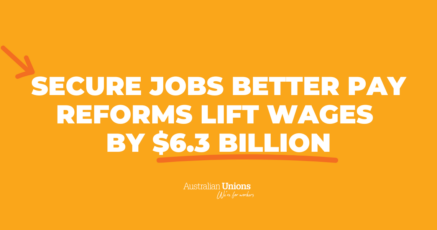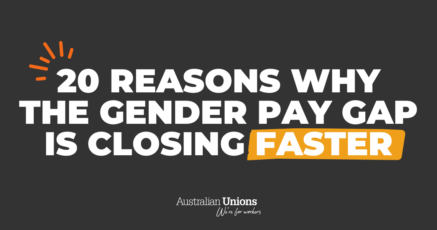The Wave Hill Walk Off was one of the key events of modern Australian history. It came at a tumultuous time for Indigenous rights in the 1960’s, and helped bring the issue to the attention of main stream Australia. But it was also an important time for the history of the trade union movement. ACTU Indigenous Officer Kara Keys recounts the role of unions in the Walk Off, in this extract from her speech to the ACTU Executive in Darwin on Tuesday 16 August 2016:
We are not just here today, in the sense that we gather to celebrate this epic saga. We are here because the Wave Hill Walk Off triggered a great evolution. An evolution in the industrial rights for Indigenous workers, and an evolution in the union movement. We are here because of the legacy of the women and men who both fought and supported this dispute.
I have learnt a number of hard lessons in researching this dispute. And in all honesty, it is from the tougher elements of this story, the uncomfortable truths, where I draw the conclusion of the great legacy that has been left to us.
In light of the environment at the time, a key reason for the NAWU to pursue a claim through the Arbitration Commission for the inclusion of Aboriginal stockmen in the Cattle Industry Award, was because the union felt that having a cheap Aboriginal labour force would undermine the wages, conditions and jobs of white workers.
At the October 1964 NAWU Central Council two significant things happened:
- The union made a historic decision to appoint an Aboriginal organiser;
- The union still saw Aboriginal workers as a threat. In a resolution named, “The Aboriginal Question” the union argued:
“The existence of a large non union force lends itself to a general depression of living standards for all and in the event of industrial conflict could conceivably place non union aborigines in the position of becoming potential scabs.”
The union at the time was also experiencing extreme pressure from the Aboriginal run and lead Northern Territory Council for Aboriginal Rights, whose key platform was equal wages for Aboriginal workers.
There was great tension between the union and NTCAR. At the time the union refused NTCAR affiliation – citing paternalistically, “We believe in assimilation but not isolation” and that Aboriginal workers would be best served by joining the union and the Labor Party. Even though, on the wages they were earning, they couldn’t afford the full union rate and the NAWU refused to introduce a concession rate for those workers. Basically locking them out of union membership.
And these tensions had a direct impact on the Wave Hill strike. Dexter Daniels, who was an organiser for the NAWU was on leave at the time of the Wave Hill Strike, largely because he was intensely feeling the pressure of the tension between the union and the NTCAR – of which he was a member and his brother Davis Daniels was the Secretary. He felt pulled in opposite directions and decided to take a break. But still, on his own time, organising Aboriginal workers.
Perhaps, if Dexter was working for the union at the time, things would have turned out differently. Why? Because the NAWU Secretary expressly instructed Dexter and other supporters not to take the Wave Hill workers out on strike. And the union could not support them.
These may be some uncomfortable truths. It may not sound very much like a great legacy. But it is.
It is a great legacy because, once the Gurindji walked off Wave Hill, the NAWU gave them their 100% support.
It is a great legacy because the union movement nationwide galvanised around the workers and gave them great support.
It is a great legacy because it fundamentally shifted the NAWU and other unions in the country. It showed unions that Indigenous workers were willing to fight for wage equality and it shifted unions to the role of supporting and fighting for all workers.
And it is a great legacy because while the trigger for the Wave Hill Walk Off was equal wages, the gun powder was the systemic racism, poor living conditions, a legislative environment which allowed for the theft of children from their families and the theft of Aboriginal people having any agency over their own lives.
The Wave Hill Walk Off shifted the nation.







SHARE:
Fifty years since the Wave Hill Walk Off